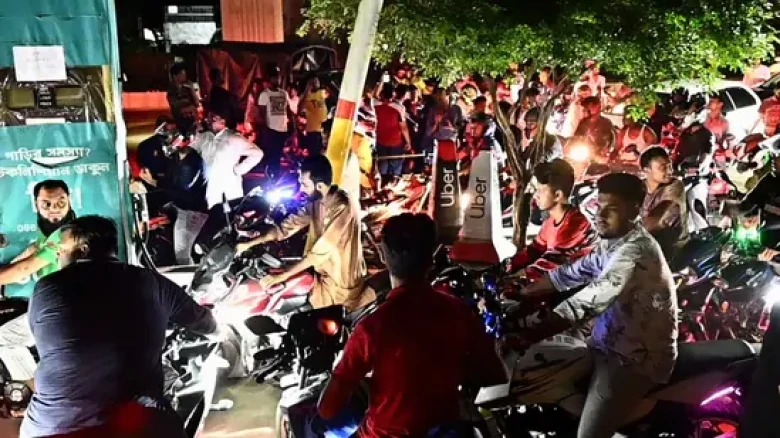Entertainment
I thought I’d never sing again...
Digital Desk:

Even if oil prices have declined in recent weeks due to recession fears, Russia's invasion of Ukraine has caused an increase in global energy prices.
color:black;mso-themecolor:text1">
color:black;mso-themecolor:text1">Digital Desk: Following the tragic situation
in Sri Lanka, thousands of demonstrators flocked to the streets in many
Bangladeshi cities when the Sheikh Hasina administration raised fuel prices to
their highest level since the neighbouring nation's independence by about 52%.
color:black;mso-themecolor:text1">Angry demonstrators surrounded gas stations
all throughout the South Asian country and demanded that the unexpected price
increase be reversed. The ongoing conflict between Russia and Ukraine is to
blame, according to the government of Bangladesh.
mso-themecolor:text1">Even if oil prices have declined in recent weeks due to
recession fears, Russia's invasion of Ukraine has caused an increase in global
energy prices.
mso-themecolor:text1">
The government of Bangladesh anticipates that
increasing fuel costs will reduce the nation's reliance on subsidies. It will,
however, increase pressure on inflation, which is currently running at 7% and
will directly impact the pockets of the average person.
Bangladesh's $416 billion economy has been
among the fastest-growing in the world for years, but as the cost of imports
increased due to rising energy and food prices, the government was forced to
seek loans from international institutions, including the International
Monetary Fund.
The nation's power, energy, and natural
resources ministry stated in a statement that as of Saturday, the price of
regular gasoline has jumped by 51.2% to 130 taka (about $108) per litre,
95-octane gasoline by 51.7% to 135 taka (around $113), and diesel and kerosene
by 42.5%.
The majority of Bangladesh's middle class and
poorer households have been struggling to pay their daily expenses as a result
of the country's inflation rate, which has been above 6% for the past nine
months and reached 7.48 percent in July.
"We are already struggling to make ends
meet. Now that the government has raised fuel prices, how will we
survive?," Mizanur Rahman, a private sector employee told Reuters.
Apart from fuel prices, the growing inflation
is also bound to increased prices of kitchen staples like rice, pulses, oil,
salt, as well as clothing and other daily needs.
The foreign exchange reserves of Bangladesh
are decreasing. In order to control this, the government has implemented a
number of steps, such as limiting imports of luxury items and fuels, such as
liquefied natural gas (LNG), and shutting down diesel-powered power facilities
in response to frequent power shortages.
"Not everyone will find the new prices
bearable. We had no other alternative, though. People must exercise patience
"Reuters cited Nasrul Hamid, state minister for power, energy, and mineral
resources. He mentioned that oil sales over the six months leading up to July
had cost the government-run Bangladesh Petroleum Corporation more than 8
billion taka ($85 million).
The minister added that once the price of
everything drops, pricing would be modified.
Leave A Comment